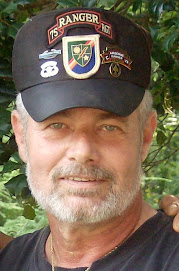
Dr. Nussbaum, of the VA Medical Center, Tampa, FL believes there are many problems in the mental health care our veterans are receiving. Dr. Nussbaum has filed a complaint with the state of Florida regarding the problems he sees. Although Dr. Nussbaum states that he does not feel the problems are widespread, evidence can be had to the contrary throughout the VA system via veteran complaints regarding their mental health treatment and programs.
Dr. Nussbaum's words are quoted below:
ON C&P EXAMS FOR PTSD:
"At the James A Haley VA [Tampa, FL] Compensation and Pension exams for PTSD last 15-20 minutes and are completed by medical residents with little, if any, training in the assessment of PTSD, yet they are making such important decisions. VA published a Best Practices manual on C&P exams for PTSD that states an initial exam is likely to require four hours or more and include psychological testing. They don’t follow this manual. I have not seen board certified psychiatrists doing C&P exams in my five+ years in the Tampa VA system."
ON PTSD TREATMENT AND CURES:
"The VA is promoting two 'evidence based' treatments for PTSD that they claim are well supported in the literature. These are based on exposure therapy models that involve very brief, but intensive, therapy lasting 10-14 weeks. They claim that many of these patients are 'cured' after this treatment. Although these can be important tools in a therapist’s toolbox, they are one of many important resources in recovering from trauma. Additionally, nearly all of the research studies were done on female civilians and veterans with sexual trauma, not male combat veterans (the predominant population it is being promoted for in VA).
"Many experts in PTSD, especially those familiar with combat veterans, understand that it takes time to develop trust and a therapeutic relationship with patients. Additionally, although you may make progress in dealing with the combat trauma, these treatments essentially ignore the co-morbid diagnoses that accompany PTSD in about 80% of cases, such as depression, panic disorder, marital/relationship problems, and substance abuse. What about the anger Vietnam vets often express related to their country rejecting them upon their return, or the five marriages and 30 jobs we often hear many have gone through? These are not a part of these brief treatments.
"Most concerning is that the treatments are manualized and try to fit people into a mold that disregards the individual's needs and personal goals for treatment. When I raised this issue, I was told, 'Sometimes what a patient wants isn’t what they need'. As a consumer of healthcare, I would hope that my providers would take my personal goals into consideration and not impose the 'flavor of the month' intervention because they find it interesting.
"Those of us who have expressed a need for the VA to provide a wide range of services from support groups to intensive treatments have been dealt uncomfortable reprisal or just flat out been ignored. The truth is we don’t know what the complex factors are that lead to PTSD and we don’t know which treatments work for all patients. However, we do know that we are all unique individuals and our soldiers and veterans who have borne the battle deserve personalized, not manualized, care that addresses that person’s unique needs."
ON INEXPERIENCED STAFF:
"In recent months, several of the Tampa PTSD clinic’s most qualified and experienced experts have been removed and replaced with less experienced staff. Many of these staff have little experience with PTSD and/or are unlicensed and not appropriately supervised per state and VA regulations. My attempts to get an audience with the Chief of Mental Health, Dr. Glenn Catalano, have repeatedly been ignored, yet he is often seen [in meetings] with the less experienced, unlicensed staff members who he has empowered to develop and oversee the programs in place for our returning Iraqi and Afghanistan soldiers/veterans."
ON WORK SCHEDULES:
"All three of the unlicensed psychologists in the PTSD clinic have requested to work a compressed work schedule (e.g. four 10-hour days). All were approved and all were allowed to take Friday as their day off. This is in an effort to provide evening/extended hours of care to better meet the needs of Iraqi/Afghanistan veterans. Yet it leaves serious gaps on Fridays. How is this improved coverage?"
ON EMPLOYEE ASSISTANCE PROGRAM:
"Of the few members of the mental health staff that are providers for the Employee Assistance Program (EAP), one is an unlicensed psychologist. I suppose licensed psychologists were not available to provide this service. Yet, I don’t recall ever being asked if I was interested."
CONCLUDING THOUGHTS:
"These issues and more are extremely concerning. I do not believe they are widespread throughout VA. I believe they are the result of a relatively few people at the local facility who are…well…you fill in the blank. These are not difficult issues to fix. VA has a wonderful approach to recruiting, hiring, retaining, and continually evaluating the performance of career staff. They just aren’t utilizing these procedures at the busiest VA in the country.
"From a mental health standpoint, I believe the resources are adequate, they are simply mismanaged. Reorganizing with the help of an outside consulting agency might help rapidly remedy these problems.
"And hopefully they will allow me to continue to be around and be a part of this positive change."
Dr. Brian Nussbaum


No comments:
Post a Comment